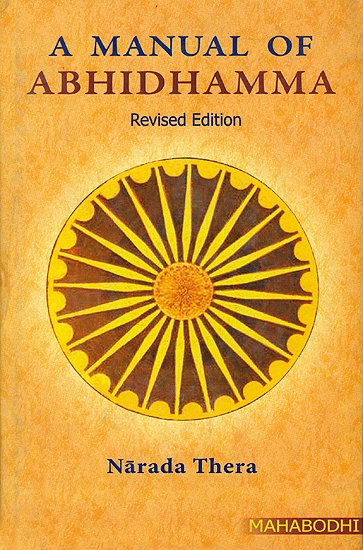Abhidhamma in Daily Life (by Ashin Janakabhivamsa)
by Ashin Janakabhivamsa | 66,666 words
English translation of "Abhidhamma in Daily Life" by Professor Ko Lay. Revised by Sayadaw U Silananda, International Theravada Buddhist Missionary University, Yangon, 1999...
Domain 7 - Pattanumodana (rejoicing at patti-dana)
Rejoicing when a donor shares his merits is known as pattanumodana. When someone shares the merits gained, you ought to appreciate it and proclaim, “Sadhu!” (well done) thrice. Feeling glad for the good done by others is laudable. It has the nature of mudita (sympathetic joy). But to achieve genuine pattanumoda merit is somewhat difficult. A customary and unwitting proclamation of “Well done” without sincere rejoicing is not pattunumoda but mere formality. And sometimes one may not really feel glad of meritorious deeds of other’s. Instead he may even cultivate envy and jealousy which amounts to bias.
The Instant Benefit of Pattanumoda
People usually give charity and alms in dedication to family members who have passed away. If the deceased who are reborn in woeful abodes received the sharing of merit from their next of life with sympathetic joy, they will then instantly released from their woes. According to the Texts if the sharing of merit is after making donation of alms-food, the departed one will be instantly appeased from hunger by saying, “Sadhu!”, if the donation is garments and robes, the deceased will become well-clothed upon saying, “Sadhu!”. It is utmost importance that in giving alms in dedication to the deceased, the recipient should be worthy of alms. Once upon a time, the bereaved members invited a dussíla Bhikkhu (immoral monk) and offered alms in dedication to the departed. When merits were shared, the deceased who was a peta by then, did not receive his due. So he yelled to his relatives, “The evil monk is robbing my share of merits.” So the relatives had to repeat the charity to a virtuous monk. Only then the peta received his share and was free from miserable existence. (See commentary on Dakkhina Vibhanga Sutta Uparipannada, Majjhima Nikáya Atthakatha).
The above incident gives us a lesson. When we dedicate our charity to a departed friend or relatives we must first get rid of our anguish and grief. Then only we should offer food, robes, umbrella, slippers, monasteries, etc. to the monks. By offering alms, the peta gets food. By offering robes, the petas gets clothes to wear. By offering monastery, the peta gets a dwelling place. For almsgiving, we ought to invite a good monk; or should perform Sanghika Dana meant for the entire Order of Sangha. Prior to this Dana, we should invite the deceased to be present at the liberation. (They will come if they can). Then we should loudly and distinctly call the deceased by name and share the merits gained.
Today’s Ritual
Most people today, after their bereavement, do not care to choose good Bhikkhus. Neither do they get of their anguish and sorrow. They offer alms and even cash to the monks at the cemetery as a routine duty, just to escape blame and get praise from others. And then they share the merits gained without thinking deeply of the benefits of the deceased. It is far better to offer alms at home with a mind free from grief than to do so at the cemetery while being afflicted with lament and sorrow. But good deeds done and alms given at the cemetery will also produce merits if performed without lamentation. (may refer to Future of sasana for further exposition on this matter.)
Who Gets the Merit Shared?
The deceased who have become peta (hungry ghosts) can receive the benefits form patti-Dana (sharing of merit) only when they are present in the vicinity. If they are reborn as humans, as animals or as petas in the remote jungles, they cannot receive the share of merits. However, other dead relatives who are now petas in the vicinity, can rejoice in these benedictions and can be reborn in other good planes of existence. Therefore sharing of merits to the deceased is a meritorious deed and should be kept in practice.
